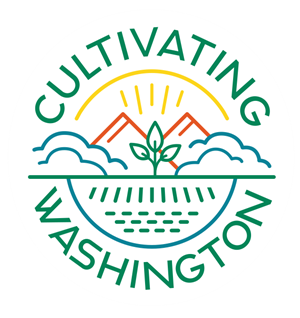In this People's History, Dorothea (Pfister) Nordstrand (1916-2011) remembers her visits with her mother to Seattle's Pike Place Market. The time was around 1920. Her mother was Mary Annie (Gierhofer) Pfister (1888-1962) and her father was Joseph A. Pfister (1883-1947). It is reprinted from "Market Memories," which appears on the Pike Place Market website (http://www.pikeplacemarket.org/frameset.asp?flash=true). In 2009 Dorothea Nordstrand was awarded AKCHO's (Association of King County Historical Organizations) Willard Jue Memorial Award for a Volunteer, for contributing these vivid reminiscences to various venues in our community, including HistoryLink.org's People's History library.
Going to Market
I remember it well, even though it was 87 years ago.
Early in that year of 1920, my father, on what was to be his first day working for the telephone company, was badly injured when the Green Lake streetcar on which he was riding, took a corner too fast and broke in half against a telephone pole at the corner of N 39th Street and Woodland Park Avenue. That cut short his career with the phone company and very nearly took his life. It was many months before he was well enough to work, and that only sporadically.
With no regular income, our family was plunged into a day-to-day struggle to put food on the table for our family of five. We had a sauerkraut barrel "working" on our back porch, but it and the backyard garden that kept it going were running out of cabbage.
It was late afternoon on a Saturday when Mom and I boarded the street car carrying three big empty shopping bags to see what we could get for the few coins she could scrape together. At that time, the Market was not open on Sundays, so her guess was that the farmers would sell anything they had left at the end of the day for a small price, rather than take it back home with them.
At the Market, the wooden stalls were somewhat depleted, but we stood and watched until there were only a few vegetables left on each one. Then, Mom stepped forward and offered a nickel or ten cents for what was left, and was almost always taken up on her offer.
We left the Market with one big shopping bag full of carrots, dry onions, beets with their greens, and rutabagas. That was the one I carried. The other two big bags held, between them, a dozen cabbages, to refill and refresh our almost empty sauerkraut barrel. Mom carried those.
We returned home with a wonderful feeling of plenty. Our family's food supply was assured for another week.

